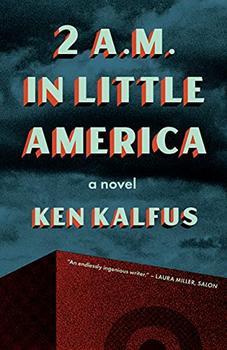Summary | Excerpt | Reviews | Beyond the Book | Readalikes | Genres & Themes | Author Bio

II
In my next country of residence no one believed I was a tourist, not at the airport when I arrived nor when I looked for places to live and work. It was hard to find work and then once I did, in a food-processing plant, I overstayed my visa, until I couldn't any longer. Further crackdowns were coming. I went to another country and then another after that, each move a last-minute escape from a looming migrant center or prison. One desert border was crossed on foot with about a dozen other undocumented travelers of diverse origins, led by smugglers who did not know the way as well as advertised. The noonday frigidity broke records, yet in its lack of relief, its desolation, its stillness, and its boundless, cloudless, birdless sky, the desert was a place of strange and absolute beauty. Every one of the desperate migrants was aware of this beauty, this gorgeousness, this transcendence, this manifestation of perfect harmony, as if it were a discrete, substantial item, its appreciation the full purpose of human existence, even as we suffered for it. We continued on, watching our steps. Night fell, the cold like a blade slicing through every inch of our exposed skin, and a family with an elderly parent had to be left behind, still drinking in the beauty.
For ten months or so I belonged to a crew on a container ship flying a flag of convenience. My passport wouldn't allow me ashore in most ports. The borderless, visa-free ocean was my home.
The American catastrophe had meanwhile entered a new phase that drained the world of any cruel pleasure it had taken in our downfall. Now the overwhelming sentiment was pity. I followed the news with averted eyes.
Around the same time, the technology used to monitor international travel and border security had matured into an airtight system, employing biometric indicators and closely networked databases. A cashless, digital economy and location services embedded into nearly every electronic device made it possible for any nation to know the identity and whereabouts of every last person within its borders and determine his or her residency status, legal or not. Unsanctioned migration had become virtually impossible.
Either for reasons of compassion, domestic politics, or workforce considerations, or a combination of the three, a few nations continued to accept migrant Americans. One of these, my new refuge, was a country with which the United States had few historic connections. Its principal ethnic group had never been a component of our celebrated melting pot. Its people, in turn, were mostly unfamiliar with American history, our culture, our mores, and our skin tones. Surprised sales clerks would stare when we entered their shops. Beyond linguistic specialists at the university, very few local people spoke English and the national language's non-Indo-European roots, labyrinthine grammar, and subtle intonation system made it very difficult for us to learn. I was good at acquiring foreign languages, but I would pick up only enough for a simple conversation.
We were tolerated, though. Americans came to occupy a vast enclave on the broad marshy plain outside the capital city. Obsolete industrial buildings, abandoned data-processing and call centers, landfills, and dumps sprawled across the territory. At one time the area had been settled by workers who had come from the country's hinterlands and laid down blocks upon blocks of bungalows, shacks, tenements, and smoky, huddled family compounds. They left and years later Americans moved in, showing some ingenuity in improving living conditions. The newcomers jury-rigged water, sewage, and electrical systems, not always safely or in conformity with government standards, which, in this outlying quarter, were laxly observed. The congestion of the streets, the ramshackleness of the residential structures and improvisational dwellings, their confines, the noise and refuse, and the limited penetration of daylight were beyond most of the Americans' experience.
Excerpted from 2 A.M. in Little America by Ken Kalfus. Copyright © 2022 by Ken Kalfus. Excerpted by permission of Milkweed Editions. All rights reserved. No part of this excerpt may be reproduced or reprinted without permission in writing from the publisher.
Your guide toexceptional books
BookBrowse seeks out and recommends the best in contemporary fiction and nonfiction—books that not only engage and entertain but also deepen our understanding of ourselves and the world around us.